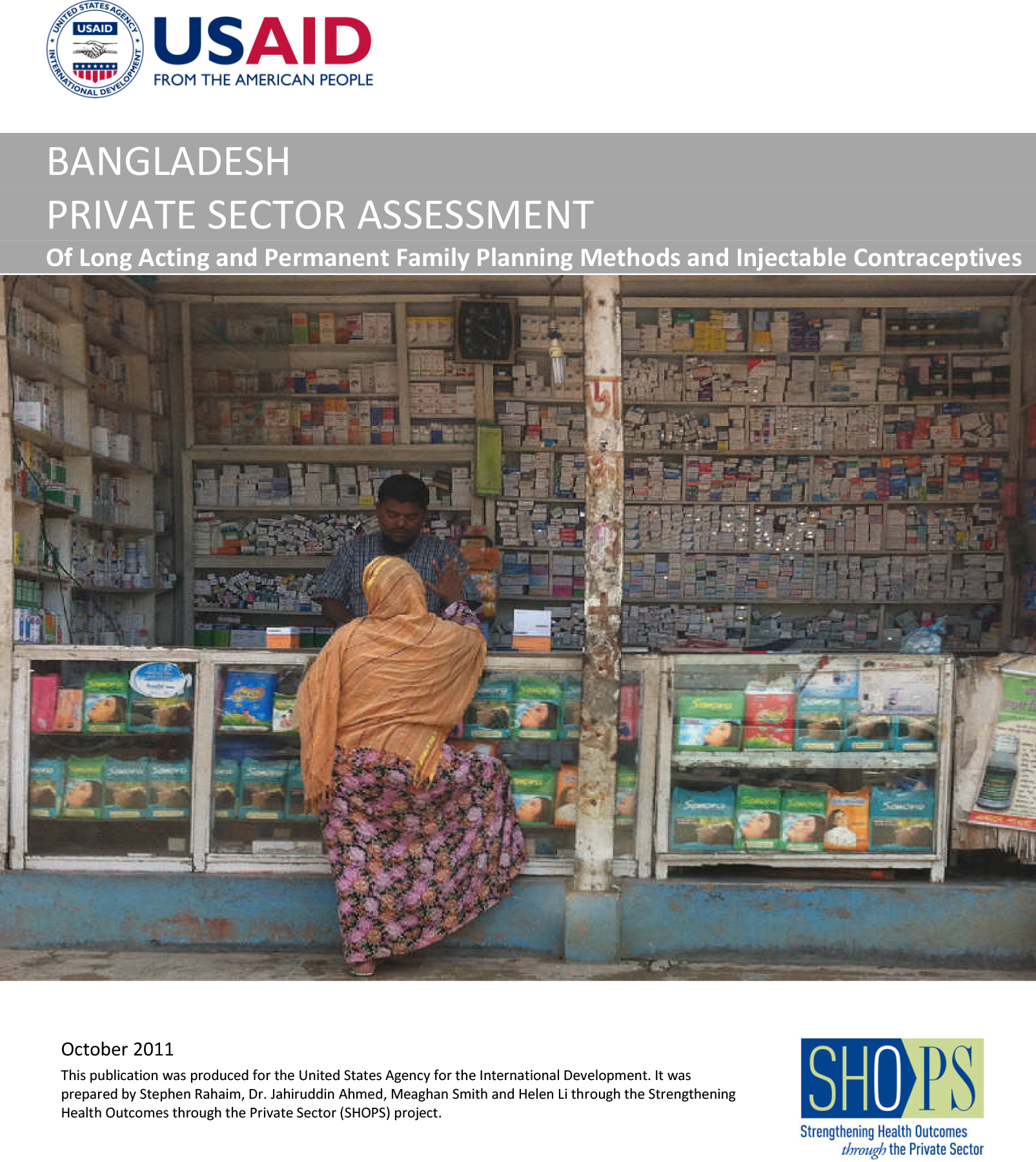
Resource Library
Bangladesh Private Sector Assessment of Long Acting and Permanent Family Planning Methods and Injectable Contraceptives
This assessment explores the challenges and opportunities for expanding access to long acting, permanent and injectable methods of family planning in Bangladesh. While the contraceptive prevalence rate in Bangladesh has risen dramatically in the past 30 years, the modern method rate is dominated by a preference for pills and condoms. The private sector is a significant contributor to the CPR rate; but for-profit providers, who account for an increasing percentage of overall health services, are not offering long-acting and permanent methods (LAPM). The findings discussed in the assessment include a lack of training available to private sector providers, a lack of commercially available LAPM commodities, a lack of demand for LAPM services in general and, in particular, through the private sector. Recommendations and strategic program opportunities are made for each finding, categorized into short- and long-term priorities and analyzed against the USAID Bangladesh Global Health Initiative Strategy.
Resource Type : Report
Country : Bangladesh
Year : 2011-11-14T15:00:00
Language : English
Project : SHOPS


